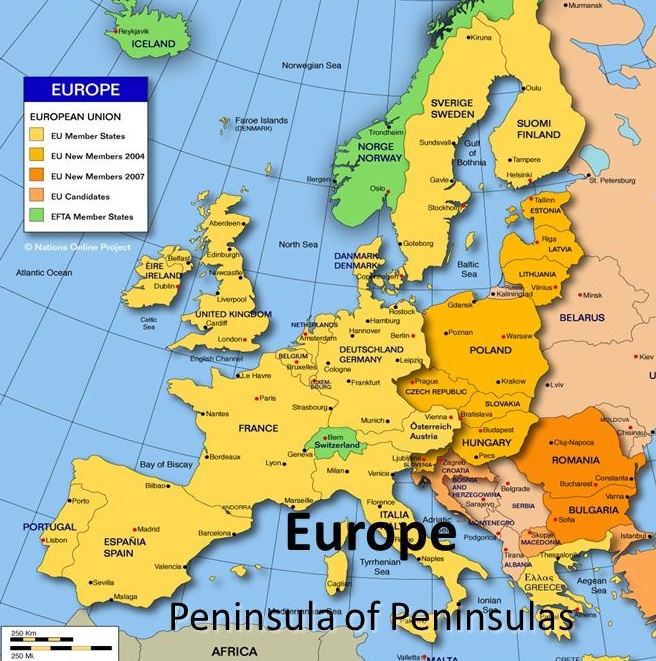
The EU’s approach to Ukraine held the premise of showing what a geopolitical Europe, as a peninsula of Eurasia, could mean – the Middle East reveals its demise, writes at POLITICO Nathalie Tocci, a director of the Istituto Affari Internazionali, a part-time professor at the European University Institute and a Europe’s Futures fellow at the Institute for Human Sciences.
As the European Union’s leadership enters its last lap, with the European Parliament elections scheduled for 2024, it’s worth reflecting on the bloc’s global role and the lessons to be drawn from the wars and crises of the last four years.
So, against the backdrop of Commission President Ursula von der Leyen’s ambition of a “geopolitical Commission,” announced at the beginning of her term, how is global Europe actually faring?
Let’s begin, for once, with the good news: Europe’s policy toward Russia’s invasion of Ukraine has featured all the elements of a successful foreign policy.
There’s the fact that the EU has remained united in pursuit of its goal. Given the Russia’s traditionally divisive nature in the intra-European debate, the war’s uneven repercussions across the EU and the enduring differences in national threat perceptions and public debates across European countries, this was no foregone conclusion.
But that’s where the good news ends.
Once the poster child for the EU’s “integrated approach to conflicts and crises,” geopolitical Europe first started wobbling in the Sahel. The coup epidemic across the region has hollowed out the bloc’s approach, and with France, quite literally, being kicked out, the EU is at a loss about what to do.
After the coup in Niger, Europe stood behind the Economic Community of West African States, claiming that by doing so, it was finally walking the walk, living up to its talk of “African solutions to African problems.” But as appealing as this slogan may sound, it hides the fact that when it comes to the Sahel, the EU no longer has a clue what it wants.
Then came the Caucasus, where, in principle, Europe did initially know what it wanted. No one contested Azerbaijan’s territorial integrity, also encompassing Nagorno-Karabakh, but everyone opposed its means of realizing this through a 10-month siege and ensuing military action. Europe also opposes the idea of Baku establishing a corridor to its Nakhichevan exclave via military means — which is in violation of Armenian sovereignty.
Here, the EU also put some of its chips on the table: European Council President Charles Michel spent significant political capital mediating between Yerevan and Baku, and the EU deployed a civilian monitoring mission in Armenia. Yet, European foreign policy instruments in the Caucasus are far too weak to contribute to Europe’s goals.
Unlike Ukraine, the EU’s economic aid in the region is limited, military assistance almost nonexistent (except from France), Azerbaijan’s energy leverage over some member countries rather significant and, for the time being, EU enlargement off the table. So, in the case of the Caucasus, the EU has a vision, but it currently lacks the means to achieve it.
Lastly, and catastrophically, comes the Middle East. The European consensus on the Israeli-Palestinian conflict had been carefully crafted over decades, coming together in the late 1990s and early 2000s to form a sound, balanced and relatively detailed formulation of a two-state solution based on the 1967 borders — a formulation ensuring Israel’s security, Palestinian self-determination, and respect and rights for all.
That consensus has been fraying for some time now, with several member countries increasingly tilting toward Israel, which, in turn, abandoned the two-state solution more and more explicitly.
For years, the EU avoided confronting its eroding consensus, implicitly buying into Israeli Prime Minister Benjamin Netanyahu’s idea that the Palestinian question could be sidestepped — an idea first endorsed by former U.S. President Donald Trump through the Abraham Accords, then by current U.S. President Joe Biden through attempted Israeli-Saudi normalization.
But the catastrophe unfolding in the Middle East since Hamas’ October 7 attacks and Israel’s military response has revealed the obvious truth that the Palestinian question cannot be bypassed or ignored. It has also exposed the painful truth of just how divided Europe has become.
In the Middle East, Europe used to have a vision — the only vision that could assure sustainable peace. And it still has the economic (vis-à-vis Palestinians) and commercial (via-à-vis Israel) leverage to contribute to such a vision, although it has always lacked the courage to use it. And we now seemingly prefer to bicker among ourselves while Gaza burns.
Europe’s approach to Ukraine held the premise of showing what a geopolitical Europe could mean. The Middle East now reveals its demise.
read more in our Telegram-channel https://t.me/The_International_Affairs

 11:43 21.11.2023 •
11:43 21.11.2023 •






















